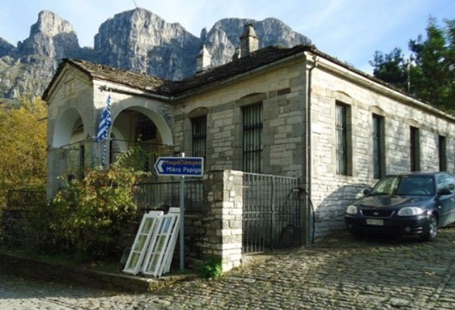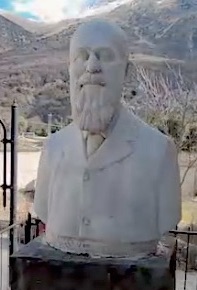Michael Anagnos (1837-1906)
Μιχάλης Αναγνωστόπουλος
Michael Anagnos (1837-1906)
Μιχάλης Αναγνωστόπουλος
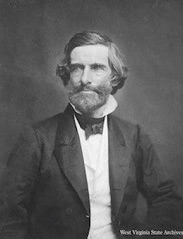
Born in Papigo, Epirus, a very small village in Greece’s northwest corner, Anagnos (left) went to Athens where he studied philosophy at the university and worked as a reporter/editor for Ethnofylax. He opposed King Otto’s authoritarianism.
In 1867 he met Samuel Gridley Howe (right), who was on his second major trip to Greece, this time to distribute money to Cretans to support their revolution. Howe invited him to come to America to help him with the Perkins School for the Blind and teach Greek to his daughter Julia Romana Howe (right).
In 1870 Anagnos married Julia Romana and was named to succeed Howe at Perkins when the latter died in 1876. He directed the institution until his death in 1906. He was a great benefactor to Papigo and Epirus.
Anagnos was instrumental in starting the Boston Orthodox Cathedral parish, several Greek-American organizations in Boston and the Pan-Hellenic Union, which was the first nation-wide group of Greeks in America. His legendary stature establishes him as one of the most important Greeks ever to live in Boston.

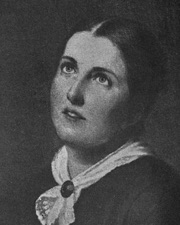
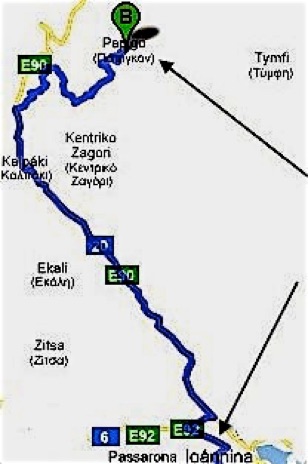
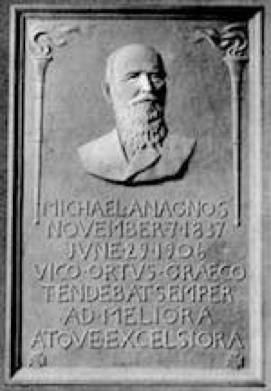
Above, Anagnos plaque and bust today at the Perkins School for the Blind, Watertown, MA.
Papigo, where the road ends in this part of Epirus, is where Anagnos was born.
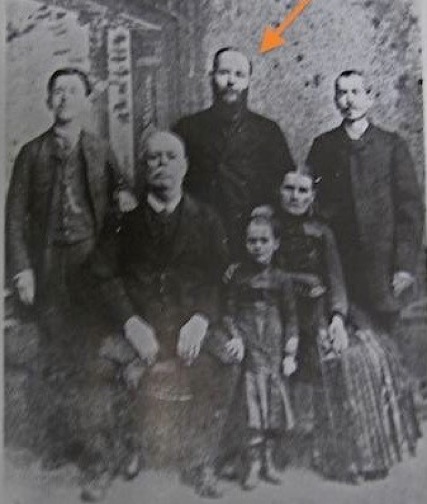

Greek-American newspaper on the dedication of Anagnos’ statue at Perkins.
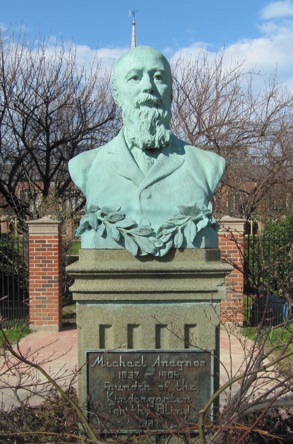
Below, the Anagnos family in Papigo.
The arrow points to Michael.
Massachusetts
Gov. Gould’s
Eulogy
of Michael Anagnos
(10/24/1906):
“Mr. Anagnos’ name belongs to Greece;
his fame illumines Massachusetts;
but his service belongs to humanity.”
Excerpt from the news story of
The Boston Daily Globe (10/25/1906) on Anagnos’ memorial service.
Julia Ward Howe’s Memorial Poem for M. Anagnos
(read by her at the memorial service, 10/24/1906
Vainly we listen for his tread,
Returning from a distant shore.
Here, where his fruitful days were sped,
The friend beloved is seen no more.
Truly, it was a gracious gift
That Greece vouchsafed us, when he came
With buoyant step and heart alight
To win an enviable fame.
The oracles of Hellas old,
The dream of glories yet to be
Had taught his spirit, frank and bold,
The price and worth of liberty........
That love which doth all ills redeem,
Which seals man’s noblest promise true,
The prophet’s pledge, the poet’s dream
Be that his legacy to you.
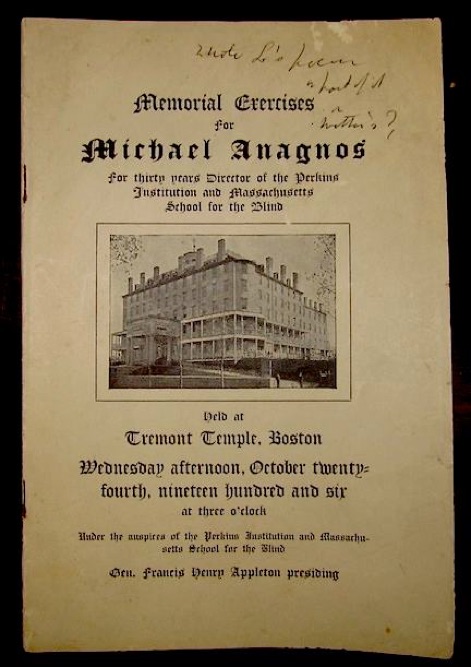
Right, , the program of the Memorial Services for M. Anagnos (Perkins archives).
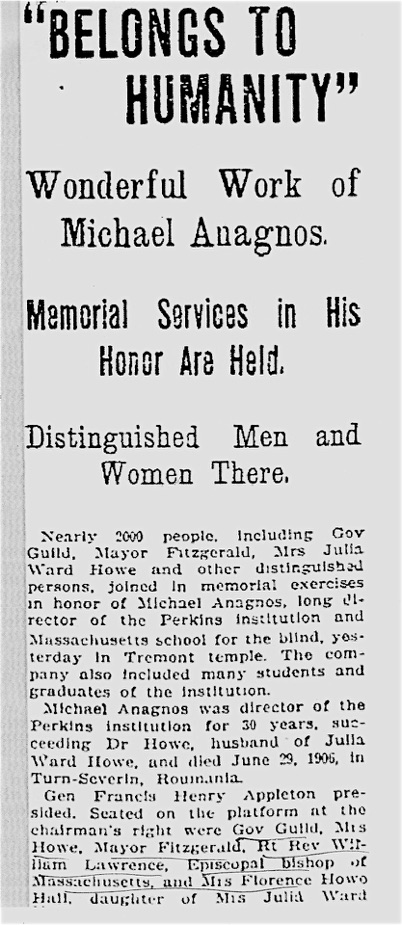
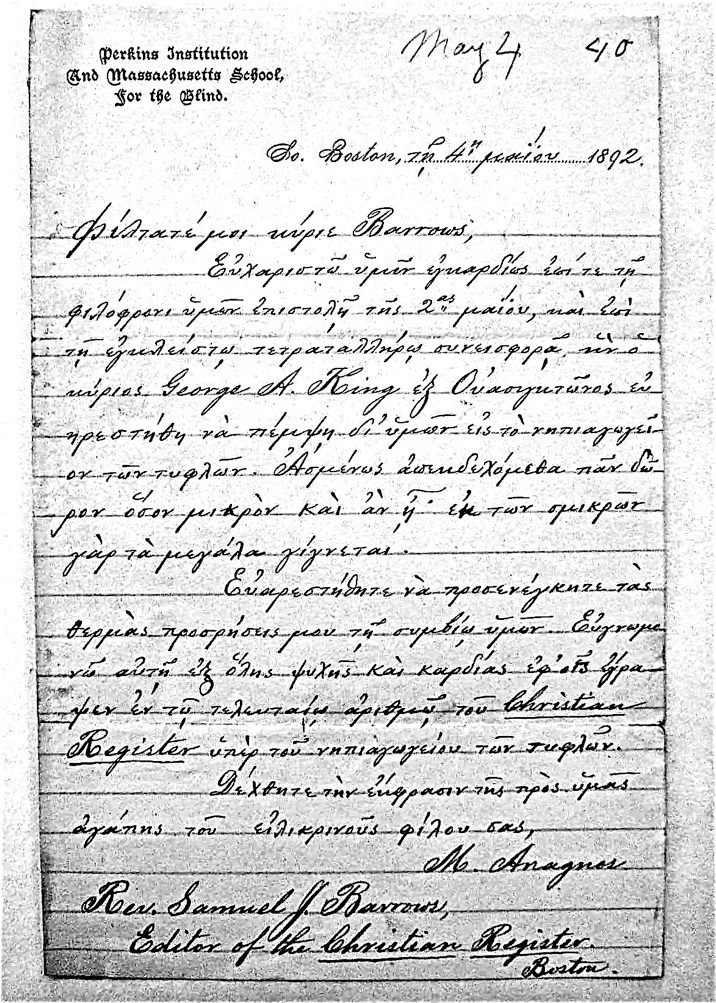
Letter of Michael Anagnos, then director of Perkins, to former Congressman S. Barrows, editor of the Christian Register, thanking him for a donation to the kindergarten for the blind in 1892.
Anagnos photo, a signed gift to his niece Amalia. Athens 1890. (Courtesy Papigo Village)
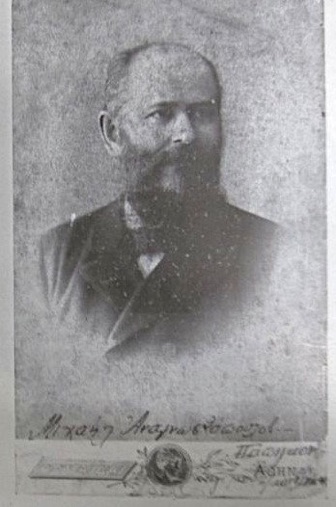
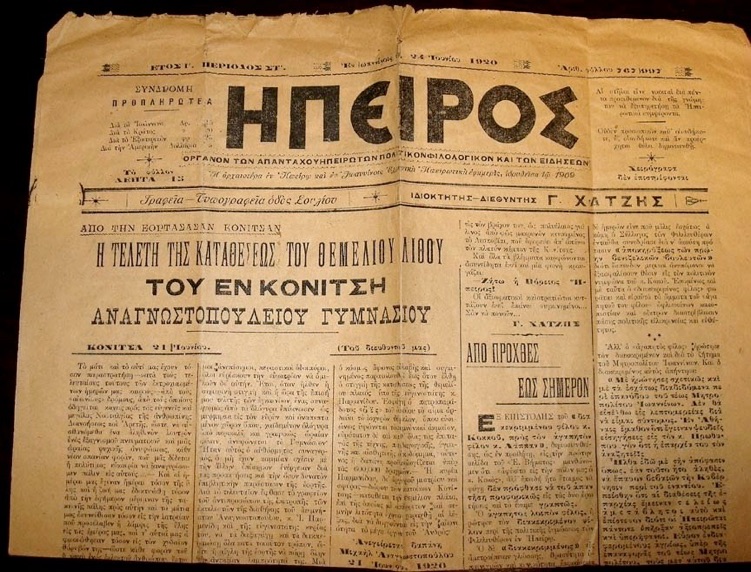
Front page of the June 24, 1920, issue of an Epirus newspaper announcing the groundbreaking for the new Anagnostopoulos high school in the city of Konitsa to be built with funds provided by the estate of Anagnos.
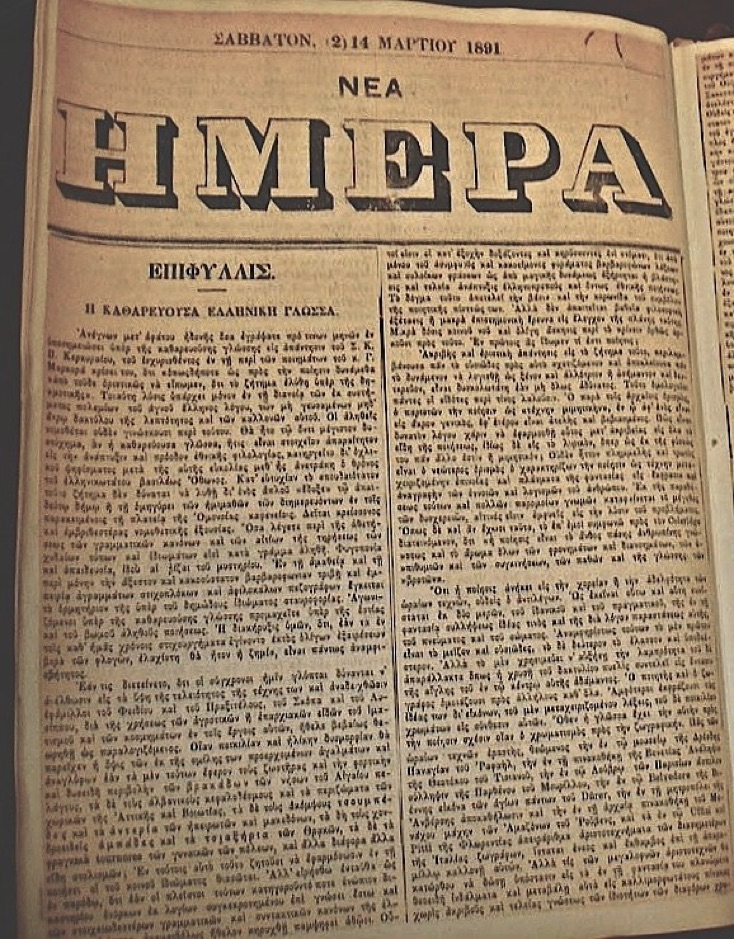
Anagnos defended the use of “katharevousa” in an article he wrote for the Athens daily New Day, March 14, 1891.
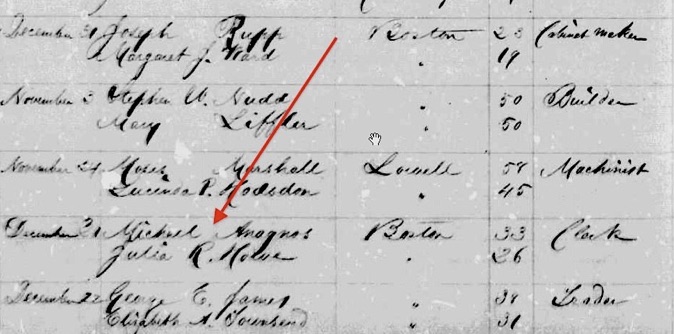
Massachusetts certificate of marriage between Michael Anagnos, 33, and Julia Romana Howe, 26, of Dec. 31, 1870. His profession was listed as “Clerk.”
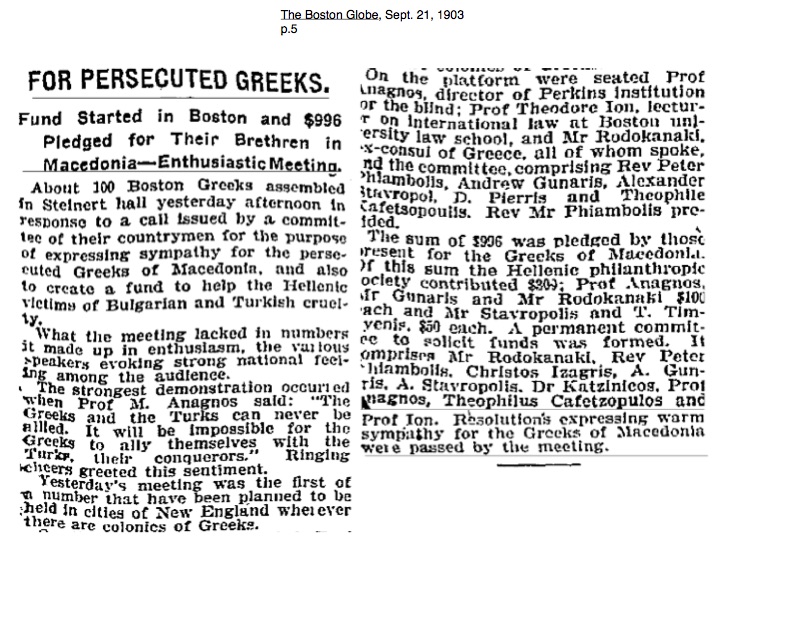
Anagnos was one of the key pillars of the Greek-American community not only in Boston but in the United States as a whole.
In 1891 he founded the Plato society, which aimed at educating the emigrating Greeks, later he founded a group of philhellenes called Alexander the Great and In 1904 he founded the Panhellenic Union, which aimed at assisting (financially and culturally) the incoming Greeks. (See chapter on “Church and Civic Groups” later in this site.)
In Boston, he was instrumental in founding the city’s first Greek Orthodox Church, the Boston Cathedral, and in organizing Greek Americans to help their motherland in times of crisis. One example was his fund-raising effort during the Macedonian war for independence (1904-08), to help “victims of Bulgarian and Turkish cruelty.” (See Boston Globe clip on left.)
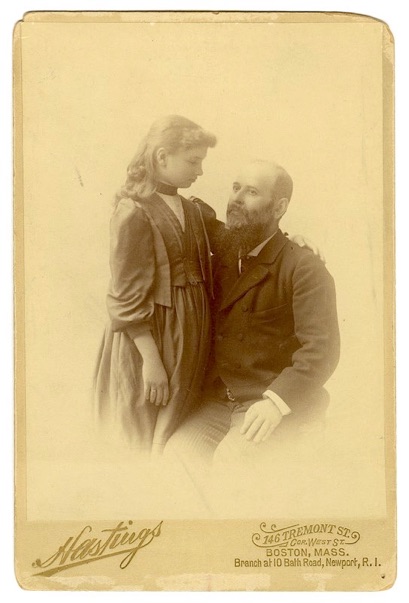
Left: Anagnos with Helen Keller
in 1891. Photo courtesy of the Perkins School. Right: Papigo’s Pubic School Library was built with funds donated by Michael Anagnos. A bust of Anagnos stands at the front of the library.
